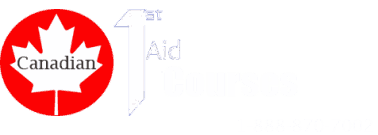Dealing with infants can be challenging and frustrating. And in these moments of frustration, you may unintentionally shake the baby; unfortunately, what seems to be harmless act can lead to Shaken Baby Syndrome. Taking a babysitting course is an excellent way to prepare for this major task and preventing Shaken Baby Syndrome (SBS).
Babysitting is no simple task. Infants and toddlers are oftentimes difficult to manage. Some frustrated babysitters, and even parents, may resort to shaking the baby to control its crying spell. However, shaking a baby can lead to harm or death. Babysitters and parents can gain knowledge how to manage young children by enrolling in a babysitting course.
What is Shaken Baby Syndrome?
Shaking a baby causes the head to jerk back and forth causing delicate brain tissues and blood vessels to slam repeatedly against the skull. This may eventually damage blood vessels surrounding the brain and lead to a buildup of blood between the brain and the skull. Minor bleeding inside the brain causes pressure to build up inside the child’s head. Increased pressure inside the skull can result in permanent disability and even death.
Since babies’ heads are heavy and neck muscles are still weak, even a short period of forceful shaking can lead to damage in their brain. Children below one year old are at high risk, although older children can also be hurt by forceful shaking. Participants at babysitting course are taught ways to protect the child’s head and neck.
What are the effects of SBS?
One in three victims of Shaken Baby Syndrome dies. In most children, it can lead to long-term disabilities due to brain injuries such as:
- paralysis,
- blindness,
- mental disabilities,
- seizure disorders and
- delayed growth and development.
Some children may also suffer broken arms and ribs due to being held tightly while doing the shaking.
How much shaking can cause harm?
Children who have been violently shaken may suffer from Shaken Baby Syndrome. Injuries are thought to be as severe as dropping an infant from a high building. Although bouncing an infant on a knee or playfully tossing an infant in the air is unlikely to cause severe injuries, babysitters and parents are advised to consider the fragility of the child’s brain and the need to support neck and head. Even minor injuries to the brain can have lifelong effects.
Shaking a baby is never okay!
How to prevent SBS?
Knowledge on the normal development and care of infants can help prevent Shaken Baby Syndrome. Babysitting and first aid courses provide you with essential information. Participants of babysitting courses are also taught how to manage feelings of frustration when caring young children. Learning how to deal with these feelings can do so much in preventing harm on children.
Parents, caregivers and babysitters should know that shaking is dangerous. When looking for a babysitter or caregiver, make sure to hire someone who has completed a babysitting training course from an accredited training provider.
